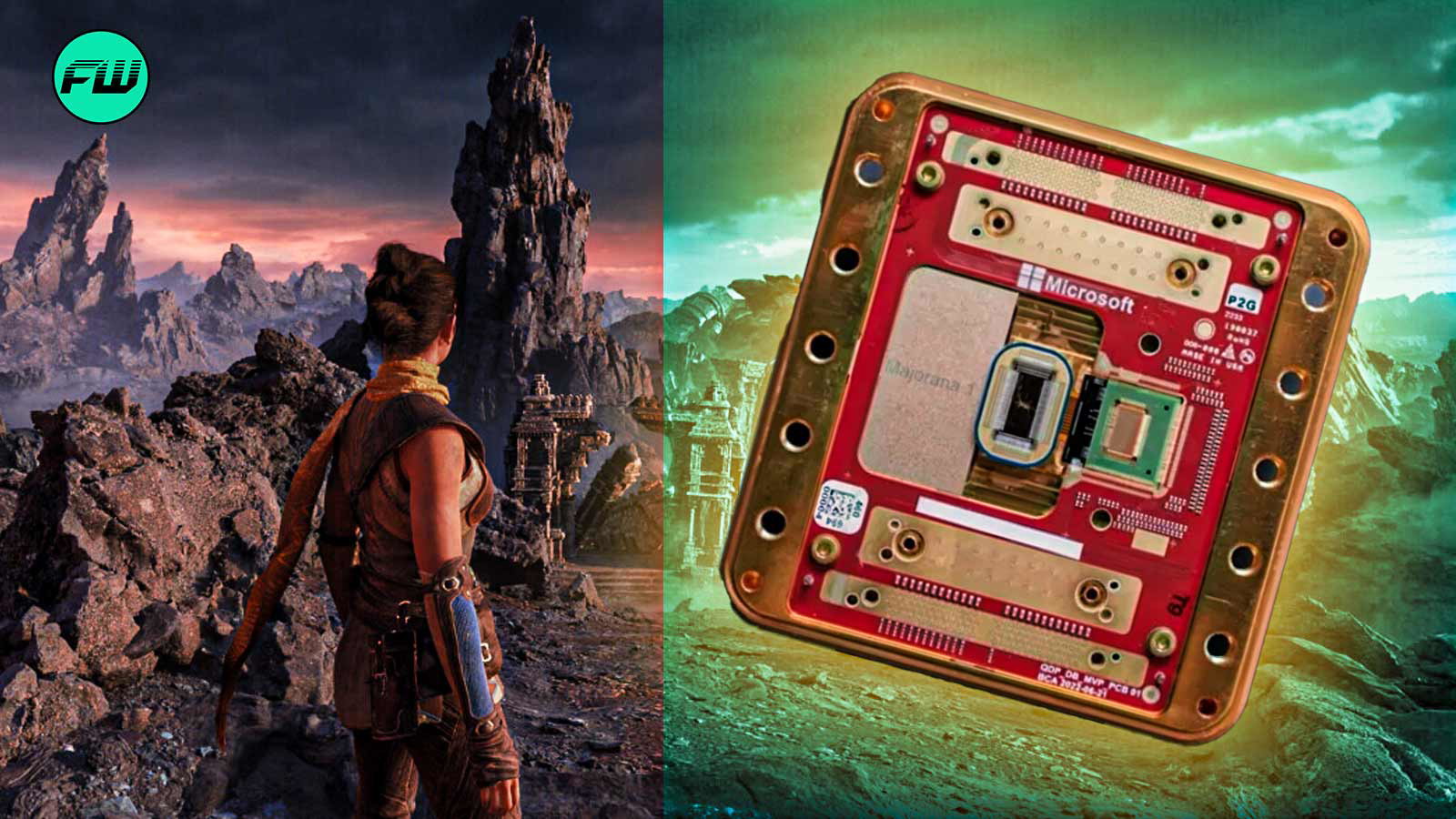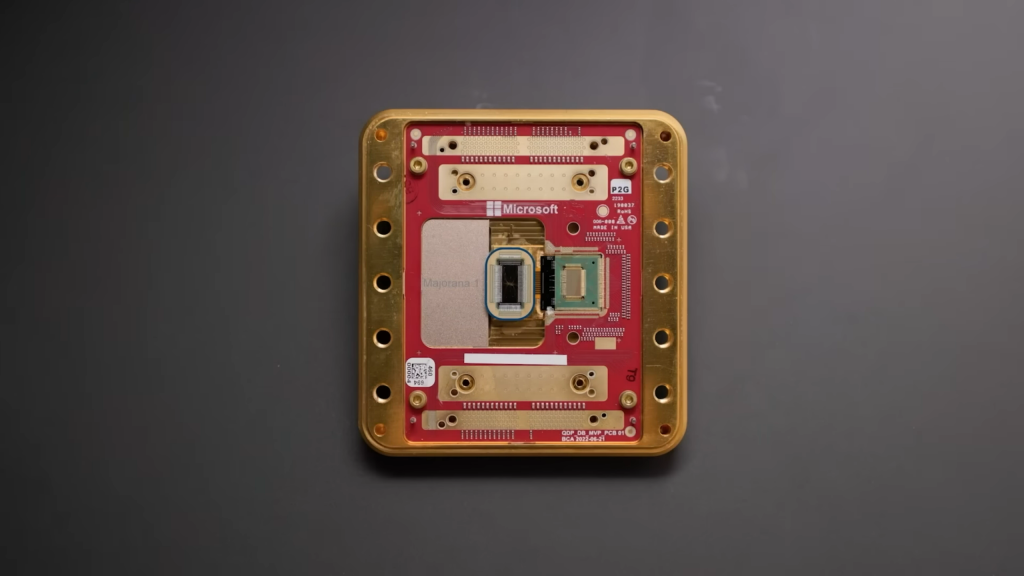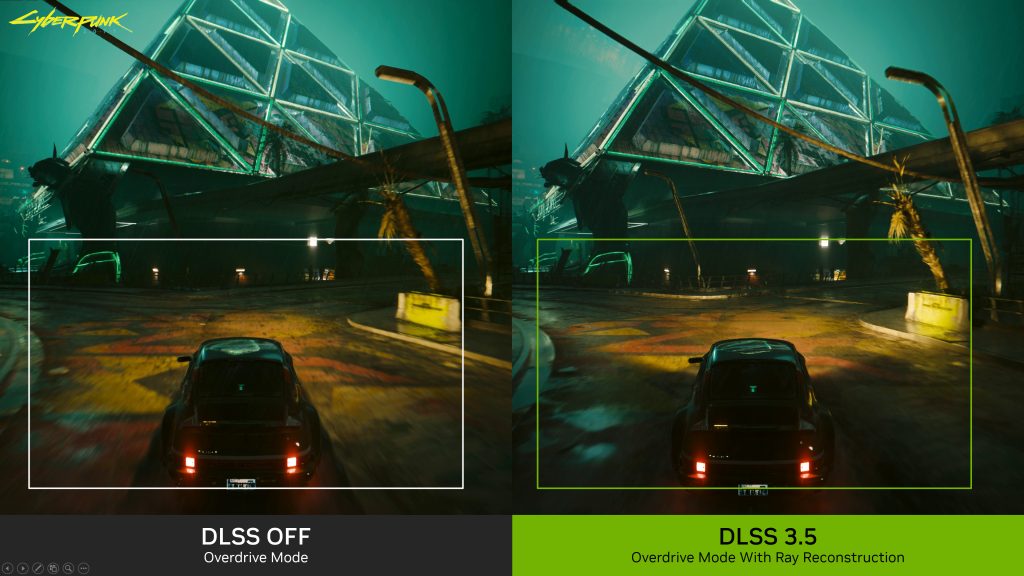
Microsoft has made a leap in quantum computing with their recently announced Majorana 1 chip. But is there a chance that somewhere down the pipeline, this affects gaming? Well, if we were to guess, a quantum computer could be the key to solving one of the biggest headaches of gamers in recent years.

With Unreal Engine 5’s heavy demand on PC hardware, players have been forced to deal with frame rate dips, shader compilation stutters, and just overall problems. The experts will have to confirm this but imagine the potential applications in AI upscaling and generation. We don’t expect to have quantum computers in our houses anytime soon, but at least our PCs won’t turn into potatoes.
Could Majorana 1 mean anything for gaming?

Unreal Engine 5 has become the go-to choice for many game developers since its release back in 2022. The tools it offers like Nanite for detailed geometry and Lumen for real-time global illumination have been game changers. But these cutting-edge features have come at a big cost of performance.
Is it the game devs that don’t know how to use unreal engine 5, or the engine is just unfixable with its temporal smears?
this is “epic” preset with ray tracing on and no upscaling. pic.twitter.com/Uqm2o2nr0I
— xPaw (@thexpaw) October 12, 2024
Many UE5 games suffer from shader compilation stutter, poor traversal loading, and high system demands. This has also made the system requirements skyrocket. We’ve seen UE5’s chronic shader compilation issues, which make many games nearly unplayable without powerful GPUs and CPUs. If quantum-powered AI engines become a reality, we may not have to tolerate these problems. This is where the Majorana 1 comes in.
Microsoft’s Majorana 1 chip is a big deal for quantum computing. Unlike traditional processors, quantum chips use qubits, which can exist in multiple states simultaneously, allowing them to perform complex calculations at speeds impossible for classical computers. Microsoft stated in its announcement that its quantum computing technology is now “years, not decades” away from real-world applications.
NVIDIA DLSS is multiplying performance in your favorite games:
DLSS 4:
🟢Marvel Rivals
🟢Delta Force: Black Hawk Down
🟢Indiana Jones and the Great CircleTMDLSS 3:
🟢Like a Dragon: Pirate Yakuza in Hawaii
🟢Legend of Ymir
🟢Lost Records: Bloom & Rage pic.twitter.com/hosFtZiFgF— NVIDIA GeForce (@NVIDIAGeForce) February 20, 2025
This new technology is going to influence a lot of different things, including medicine, cryptography, and possibly, gaming. While Unreal Engine 5 relies on traditional rasterization and hardware-intensive rendering, quantum computing could introduce a new stage for AI-driven, real-time world generation.
It’d be great if it could improve AI upscaling and generation

AI-powered upscaling has already become a ‘game changer’ for games. Technologies like DLSS, FSR, and XeSS allow GPUs to render frames at lower resolutions and scale the image up using AI with minimal loss of quality. These technologies work by using AI to predict and fill in missing details.
But quantum computing could take this even further by using AI models to process even more complex data in real-time. Think about it, what if, instead of simply upscaling images, quantum-powered AI could dynamically generate entire game environments? It could run physics interactions and lighting effects at a fraction of the computational cost of current methods.
Modern GPUs, no matter how powerful, will eventually hit a bottleneck in performance. AI upscaling has already shown that rendering at a lower resolution and reconstructing high-quality frames is a viable alternative. We may be near a world where developers and players wouldn’t need to compromise between graphical quality and performance.
This post belongs to FandomWire and first appeared on FandomWire

